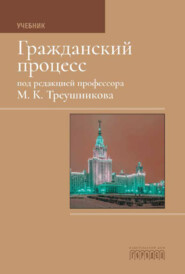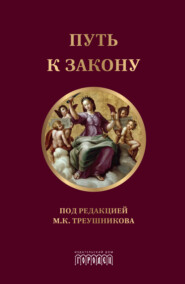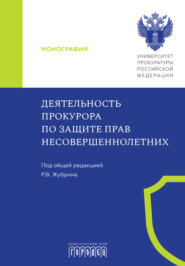По всем вопросам обращайтесь на: info@litportal.ru
(©) 2003-2024.
✖
International Short Stories: French
Настройки чтения
Размер шрифта
Высота строк
Поля
"The couriers who pursued me did not know me. I had hardly ever shown my face to any but thee, and to thee only in the presence and by the order of my husband. They conducted themselves in the pursuit by the description that had been given them of my person. On the frontiers of Egypt they met with a woman of the same stature with me, and possessed perhaps of greater charms. She was weeping and wandering. They made no doubt but that this woman was the Queen of Babylon and accordingly brought her to Moabdar. Their mistake at first threw the king into a violent passion; but having viewed this woman more attentively, he found her extremely handsome and was comforted. She was called Missouf. I have since been informed that this name in the Egyptian language signifies the capricious fair one. She was so in reality; but she had as much cunning as caprice. She pleased Moabdar and gained such an ascendancy over him as to make him choose her for his wife. Her character then began to appear in its true colors. She gave herself up, without scruple, to all the freaks of a wanton imagination. She would have obliged the chief of the magi, who was old and gouty, to dance before her; and on his refusal, she persecuted him with the most unrelenting cruelty. She ordered her master of the horse to make her a pie of sweetmeats. In vain did he represent that he was not a pastry-cook; he was obliged to make it, and lost his place, because it was baked a little too hard. The post of master of the horse she gave to her dwarf, and that of chancellor to her page. In this manner did she govern Babylon. Everybody regretted the loss of me. The king, who till the moment of his resolving to poison me and strangle thee had been a tolerably good kind of man, seemed now to have drowned all his virtues in his immoderate fondness for this capricious fair one. He came to the temple on the great day of the feast held in honor of the sacred fire. I saw him implore the gods in behalf of Missouf, at the feet of the statue in which I was inclosed. I raised my voice, I cried out, 'The gods reject the prayers of a king who is now become a tyrant, and who attempted to murder a reasonable wife, in order to marry a woman remarkable for nothing but her folly and extravagance.' At these words Moabdar was confounded and his head became disordered. The oracle I had pronounced, and the tyranny of Missouf, conspired to deprive him of his judgment, and in a few days his reason entirely forsook him.
"Moabdar's madness, which seemed to be the judgment of Heaven, was the signal to a revolt. The people rose and ran to arms; and Babylon, which had been so long immersed in idleness and effeminacy, became the theater of a bloody civil war. I was taken from the heart of my statue and placed at the head of a party. Cador flew to Memphis to bring thee back to Babylon. The Prince of Hircania, informed of these fatal events, returned with his army and made a third party in Chaldea. He attacked the king, who fled before him with his capricious Egyptian. Moabdar died pierced with wounds. I myself had the misfortune to be taken by a party of Hircanians, who conducted me to their prince's tent, at the very moment that Missouf was brought before him. Thou wilt doubtless be pleased to hear that the prince thought me beautiful; but thou wilt be sorry to be informed that he designed me for his seraglio. He told me, with a blunt and resolute air, that as soon as he had finished a military expedition, which he was just going to undertake, he would come to me. Judge how great must have been my grief. My ties with Moabdar were already dissolved; I might have been the wife of Zadig; and I was fallen into the hands of a barbarian. I answered him with all the pride which my high rank and noble sentiment could inspire. I had always heard it affirmed that Heaven stamped on persons of my condition a mark of grandeur, which, with a single word or glance, could reduce to the lowliness of the most profound respect those rash and forward persons who presume to deviate from the rules of politeness. I spoke like a queen, but was treated like a maidservant. The Hircanian, without even deigning to speak to me, told his black eunuch that I was impertinent, but that he thought me handsome. He ordered him to take care of me, and to put me under the regimen of favorites, that so my complexion being improved, I might be the more worthy of his favors when he should be at leisure to honor me with them, I told him that rather than submit to his desires I would put an end to my life. He replied, with a smile, that women, he believed, were not, so bloodthirsty, and that he was accustomed to such violent expressions; and then left me with the air of a man who had just put another parrot into his aviary. What a state for the first queen of the universe, and, what is more, for a heart devoted to Zadig!"
At these words Zadig threw himself at her feet and bathed them with his tears. Astarte raised him with great tenderness and thus continued her story: "I now saw myself in the power of a barbarian and rival to the foolish woman with whom I was confined. She gave me an account of her adventures in Egypt. From the description she gave me of your person, from the time, from the dromedary on which you were mounted, and from every other circumstance, I inferred that Zadig was the man who had fought for her. I doubted not but that you were at Memphis, and, therefore, resolved to repair thither. Beautiful Missouf, said I, thou art more handsome than I, and will please the Prince of Hircania much better. Assist me in contriving the means of my escape; thou wilt then reign alone; thou wilt at once make me happy and rid thyself of a rival. Missouf concerted with me the means of my flight; and I departed secretly with a female Egyptian slave.
"As I approached the frontiers of Arabia, a famous robber, named Arbogad, seized me and sold me to some merchants, who brought me to this castle, where Lord Ogul resides. He bought me without knowing who I was. He is a voluptuary, ambitious of nothing but good living, and thinks that God sent him into the world for no other purpose than to sit at table. He is so extremely corpulent that he is always in danger of suffocation. His physician, who has but little credit with him when he has a good digestion, governs him with a despotic sway when he has eaten too much. He has persuaded him that a basilisk stewed in rose water will effect a complete cure. The Lord Ogul hath promised his hand to the female slave that brings him a basilisk. Thou seest that I leave them to vie with each other in meriting this honor; and never was I less desirous of finding the basilisk than since Heaven hath restored thee to my sight."
This account was succeeded by a long conversation between Astarte and Zadig, consisting of everything that their long-suppressed sentiments, their great sufferings, and their mutual love could inspire in hearts the most noble and tender; and the genii who preside over love carried their words to the sphere of Venus.
The woman returned to Ogul without having found the basilisk. Zadig was introduced to this mighty lord and spoke to him in the following terms: "May immortal health descend from heaven to bless all thy days! I am a physician; at the first report of thy indisposition I flew to thy castle and have now brought thee a basilisk stewed in rose water. Not that I pretend to marry thee. All I ask is the liberty of a Babylonian slave, who hath been in thy possession for a few days; and, if I should not be so happy as to cure thee, magnificent Lord Ogul, I consent to remain a slave in her place."
The proposal was accepted. Astarte set out for Babylon with Zadig's servant, promising, immediately upon her arrival, to send a courier to inform him of all that had happened. Their parting was as tender as their meeting. The moment of meeting and that of parting are the two greatest epochs of life, as sayeth the great book of Zend. Zadig loved the queen with as much ardor as he professed; and the queen loved him more than she thought proper to acknowledge.
Meanwhile Zadig spoke thus to Ogul: "My lord, my basilisk is not to be eaten; all its virtues must enter through thy pores. I have inclosed it in a little ball, blown up and covered with a fine skin. Thou must strike this ball with all thy might and I must strike it back for a considerable time; and by observing this regimen for a few days thou wilt see the effects of my art." The first day Ogul was out of breath and thought he should have died with fatigue. The second he was less fatigued, slept better. In eight days he recovered all the strength, all the health, all the agility and cheerfulness of his most agreeable years.
"Thou hast played at ball, and thou hast been temperate," said Zadig; "know that there is no such thing in nature as a basilisk; that temperance and exercise are the two great preservatives of health; and that the art of reconciling intemperance and health is as chimerical as the philosopher's stone, judicial astrology, or the theology of the magi."
Ogul's first physician, observing how dangerous this man might prove to the medical art, formed a design, in conjunction with the apothecary, to send Zadig to search for a basilisk in the other world. Thus, having suffered such a long train of calamities on account of his good actions, he was now upon the point of losing his life for curing a gluttonous lord. He was invited to an excellent dinner and was to have been poisoned in the second course, but, during the first, he happily received a courier from the fair Astarte. "When one is beloved by a beautiful woman," says the great Zoroaster, "he hath always the good fortune to extricate himself out of every kind of difficulty and danger."
THE COMBATS
The queen was received at Babylon with all those transports of joy which are ever felt on the return of a beautiful princess who hath been involved in calamities. Babylon was now in greater tranquillity. The Prince of Hircania had been killed in battle. The victorious Babylonians declared that the queen should marry the man whom they should choose for their sovereign. They were resolved that the first place in the world, that of being husband to Astarte and King of Babylon, should not depend on cabals and intrigues. They swore to acknowledge for king the man who, upon trial, should be found to be possessed of the greatest valor and the greatest wisdom. Accordingly, at the distance of a few leagues from the city, a spacious place was marked out for the list, surrounded with magnificent amphitheaters. Thither the combatants were to repair in complete armor. Each of them had a separate apartment behind the amphitheaters, where they were neither to be seen nor known by anyone. Each was to encounter four knights, and those that were so happy as to conquer four were then to engage with one another; so that he who remained the last master of the field would be proclaimed conqueror at the games.
Four days after he was to return with the same arms and to explain the enigmas proposed by the magi. If he did not explain the enigmas he was not king; and the running at the lances was to be begun afresh till a man would be found who was conqueror in both these combats; for they were absolutely determined to have a king possessed of the greatest wisdom and the most invincible courage. The queen was all the while to be strictly guarded: she was only allowed to be present at the games, and even there she was to be covered with a veil; but was not permitted to speak to any of the competitors, that so they might neither receive favor, nor suffer injustice.
These particulars Astarte communicated to her lover, hoping that in order to obtain her he would show himself possessed of greater courage and wisdom than any other person. Zadig set out on his journey, beseeching Venus to fortify his courage and enlighten his understanding. He arrived on the banks of the Euphrates on the eve of this great day. He caused his device to be inscribed among those of the combatants, concealing his face and his name, as the law ordained; and then went to repose himself in the apartment that fell to him by lot. His friend Cador, who, after the fruitless search he had made for him in Egypt, was now returned to Babylon, sent to his tent a complete suit of armor, which was a present from the queen; as also, from himself, one of the finest horses in Persia. Zadig presently perceived that these presents were sent by Astarte; and from thence his courage derived fresh strength, and his love the most animating hopes.
Next day, the queen being seated under a canopy of jewels, and the amphitheaters filled with all the gentlemen and ladies of rank in Babylon, the combatants appeared in the circus. Each of them came and laid his device at the feet of the grand magi. They drew their devices by lot; and that of Zadig was the last. The first who advanced was a certain lord, named Itobad, very rich and very vain, but possessed of little courage, of less address, and hardly of any judgment at all. His servants had persuaded him that such a man as he ought to be king; he had said in reply, "Such a man as I ought to reign"; and thus they had armed him cap-à-pie. He wore an armor of gold enameled with green, a plume of green feathers, and a lance adorned with green ribbons. It was instantly perceived by the manner in which Itobad managed his horse, that it was not for such a man as he that Heaven reserved the scepter of Babylon. The first knight that ran against him threw him out of his saddle; the second laid him flat on his horse's buttocks, with his legs in the air, and his arms extended. Itobad recovered himself, but with so bad a grace that the whole amphitheater burst out a-laughing. The third knight disdained to make use of his lance; but, making a pass at him, took him by the right leg and, wheeling him half round, laid him prostrate on the sand. The squires of the game ran to him laughing, and replaced him in his saddle. The fourth combatant took him by the left leg, and tumbled him down on the other side. He was conducted back with scornful shouts to his tent, where, according to the law, he was to pass the night; and as he climbed along with great difficulty he said, "What an adventure for such a man as I!"
The other knights acquitted themselves with greater ability and success. Some of them conquered two combatants; a few of them vanquished three; but none but Prince Otamus conquered four. At last Zadig fought him in his turn. He successively threw four knights off their saddles with all the grace imaginable. It then remained to be seen who should be conqueror, Otamus or Zadig. The arms of the first were gold and blue, with a plume of the same color; those of the last were white. The wishes of all the spectators were divided between the knight in blue and the knight in white. The queen, whose heart was in a violent palpitation, offered prayers to Heaven for the success of the white color.
The two champions made their passes and vaults with so much agility, they mutually gave and received such dexterous blows with their lances, and sat so firmly in their saddles, that everybody but the queen wished there might be two kings in Babylon. At length, their horses being tired and their lances broken, Zadig had recourse to this stratagem: He passes behind the blue prince; springs upon the buttocks of his horse; seizes him by the middle; throws him on the earth; places himself in the saddle; and wheels around Otamus as he lay extended on the ground. All the amphitheater cried out, "Victory to the white knight!"
Otamus rises in a violent passion, and draws his sword; Zadig leaps from his horse with his saber in his hand. Both of them are now on the ground, engaged in a new combat, where strength and agility triumph by turns. The plumes of their helmets, the studs of their bracelets, the rings of their armor, are driven to a great distance by the violence of a thousand furious blows. They strike with the point and the edge; to the right, to the left, on the head, on the breast; they retreat; they advance; they measure swords; they close; they seize each other; they bend like serpents; they attack like lions; and the fire every moment flashes from their blows.
At last Zadig, having recovered his spirits, stops; makes a feint; leaps upon Otamus; throws him on the ground and disarms him; and Otamus cries out, "It is thou alone, O white knight, that oughtest to reign over Babylon!" The queen was now at the height of her joy. The knight in blue armor and the knight in white were conducted each to his own apartment, as well as all the others, according to the intention of the law. Mutes came to wait upon them and to serve them at table. It may be easily supposed that the queen's little mute waited upon Zadig. They were then left to themselves to enjoy the sweets of repose till next morning, at which time the conqueror was to bring his device to the grand magi, to compare it with that which he had left, and make himself known.
Zadig though deeply in love, was so much fatigued that he could not help sleeping. Itobad, who lay near him, never closed his eyes. He arose in the night, entered his apartment, took the white arms and the device of Zadig, and put his green armor in their place. At break of day he went boldly to the grand magi to declare that so great a man as he was conqueror. This was little expected; however, he was proclaimed while Zadig was still asleep. Astarte, surprised and filled with despair, returned to Babylon. The amphitheater was almost empty when Zadig awoke; he sought for his arms, but could find none but the green armor. With this he was obliged to cover himself, having nothing else near him. Astonished and enraged, he put it on in a furious passion, and advanced in this equipage.
The people that still remained in the amphitheater and the circus received him with hoots and hisses. They surrounded him and insulted him to his face. Never did man suffer such cruel mortifications. He lost his patience; with his saber he dispersed such of the populace as dared to affront him; but he knew not what course to take. He could not see the queen; he could not claim the white armor she had sent him without exposing her; and thus, while she was plunged in grief, he was filled with fury and distraction. He walked on the banks of the Euphrates, fully persuaded that his star had destined him to inevitable misery, and resolving in his own mind all his misfortunes, from the adventure of the woman who hated one-eyed men to that of his armor. "This," said he, "is the consequence of my having slept too long. Had I slept less, I should now have been King of Babylon and in possession of Astarte. Knowledge, virtue, and courage have hitherto served only to make me miserable." He then let fall some secret murmurings against Providence, and was tempted to believe that the world was governed by a cruel destiny, which oppressed the good and prospered knights in green armor. One of his greatest mortifications was his being obliged to wear that green armor which had exposed him to such contumelious treatment. A merchant happening to pass by, he sold it to him for a trifle and bought a gown and a long bonnet. In this garb he proceeded along the banks of the Euphrates, filled with despair, and secretly accusing Providence, which thus continued to persecute him with unremitting severity.
THE HERMIT
While he was thus sauntering he met a hermit, whose white and venerable beard hung down to his girdle. He held a book in his hand, which he read with great attention. Zadig stopped, and made him a profound obeisance. The hermit returned the compliment with such a noble and engaging air, that Zadig had the curiosity to enter into conversation with him. He asked him what book it was that he had been reading? "It is the Book of Destinies," said the hermit; "wouldst thou choose to look into it?" He put the book into the hands of Zadig, who, thoroughly versed as he was in several languages, could not decipher a single character of it. This only redoubled his curiosity.
"Thou seemest," said this good father, "to be in great distress."
"Alas," replied Zadig, "I have but too much reason."
"If thou wilt permit me to accompany thee," resumed the old man, "perhaps I may be of some service to thee. I have often poured the balm of consolation into the bleeding heart of the unhappy."
Zadig felt himself inspired with respect for the air, the beard, and the book of the hermit. He found, in the course of the conversation, that he was possessed of superior degrees of knowledge. The hermit talked of fate, of justice, of morals, of the chief good, of human weakness, and of virtue and vice, with such a spirited and moving eloquence, that Zadig felt himself drawn toward him by an irresistible charm. He earnestly entreated the favor of his company till their return to Babylon.
"I ask the same favor of thee," said the old man; "swear to me by Oromazes, that whatever I do, thou wilt not leave me for some days." Zadig swore, and they set out together.
In the evening the two travelers arrived in a superb castle. The hermit entreated a hospitable reception for himself and the young man who accompanied him. The porter, whom one might have easily mistaken for a great lord, introduced them with a kind of disdainful civility. He presented them to a principal domestic, who showed them his master's magnificent apartments. They were admitted to the lower end of the table, without being honored with the least mark of regard by the lord of the castle; but they were served, like the rest, with delicacy and profusion. They were then presented with water to wash their hands, in a golden basin adorned with emeralds and rubies. At last they were conducted to bed in a beautiful apartment; and in the morning a domestic brought each of them a piece of gold, after which they took their leave and departed.
"The master of the house," said Zadig, as they were proceeding on the journey, "appears to be a generous man, though somewhat too proud; he nobly performs the duties of hospitality." At that instant he observed that a kind of large pocket, which the hermit had, was filled and distended; and upon looking more narrowly he found that it contained the golden basin adorned with precious stones, which the hermit had stolen. He durst not take any notice of it, but he was filled with a strange surprise.
About noon, the hermit came to the door of a paltry house inhabited by a rich miser, and begged the favor of an hospitable reception for a few hours. An old servant, in a tattered garb, received them with a blunt and rude air, and led them into the stable, where he gave them some rotten olives, moldy bread, and sour beer. The hermit ate and drank with as much seeming satisfaction as he had done the evening before; and then addressing himself to the old servant, who watched them both, to prevent their stealing anything, and rudely pressed them to depart, he gave him the two pieces of gold he had received in the morning, and thanked him for his great civility.
"Pray," added he, "allow me to speak to thy master." The servant, filled with astonishment, introduced the two travelers. "Magnificent lord," said the hermit, "I cannot but return thee my most humble thanks for the noble manner in which thou hast entertained us. Be pleased to accept this golden basin as a small mark of my gratitude." The miser started, and was ready to fall backward; but the hermit, without giving him time to recover from his surprise, instantly departed with his young fellow traveler.
"Father," said Zadig, "what is the meaning of all this? Thou seemest to me to be entirely different from other men; thou stealest a golden basin adorned with precious stones from a lord who received thee magnificently, and givest it to a miser who treats thee with indignity."
"Son," replied the old man, "this magnificent lord, who receives strangers only from vanity and ostentation, will hereby be rendered more wise; and the miser will learn to practice the duties of hospitality. Be surprised at nothing, but follow me."
Zadig knew not as yet whether he was in company with the most foolish or the most prudent of mankind; but the hermit spoke with such an ascendancy, that Zadig, who was moreover bound by his oath, could not refuse to follow him.
In the evening they arrived at a house built with equal elegance and simplicity, where nothing savored either of prodigality or avarice. The master of it was a philosopher, who had retired from the world, and who cultivated in peace the study of virtue and wisdom, without any of that rigid and morose severity so commonly to be found in men of his character. He had chosen to build this country house, in which he received strangers with a generosity free from ostentation. He went himself to meet the two travelers, whom he led into a commodious apartment, where he desired them to repose themselves a little. Soon after he came and invited them to a decent and well-ordered repast during which he spoke with great judgment of the last revolutions in Babylon. He seemed to be strongly attached to the queen, and wished that Zadig had appeared in the lists to dispute the crown. "But the people," added he, "do not deserve to have such a king as Zadig."
Zadig blushed, and felt his griefs redoubled. They agreed, in the course of the conversation, that the things of this world did not always answer the wishes of the wise. The hermit still maintained that the ways of Providence were inscrutable; and that men were in the wrong to judge of a whole, of which they understood but the smallest part.
They talked of passions. "Ah," said Zadig, "how fatal are their effects!"
"They are in the winds," replied the hermit, "that swell the sails of the ship; it is true, they sometimes sink her, but without them she could not sail at all. The bile makes us sick and choleric; but without bile we could not live. Everything in this world is dangerous, and yet everything is necessary."
The conversation turned on pleasure; and the hermit proved that it was a present bestowed by the Deity. "For," said he, "man cannot give himself either sensations or ideas; he receives all; and pain and pleasure proceed from a foreign cause as well as his being."
Zadig was surprised to see a man, who had been guilty of such extravagant actions, capable of reasoning with so much judgment and propriety. At last, after a conversation equally entertaining and instructive, the host led back his two guests to their apartment, blessing Heaven for having sent him two men possessed of so much wisdom and virtue. He offered them money with such an easy and noble air as could not possibly give any offense. The hermit refused it, and said that he must now take his leave of him, as he set out for Babylon before it was light. Their parting Was tender; Zadig especially felt himself filled with esteem and affection for a man of such an amiable character.
When he and the hermit were alone in their apartment, they spent a long time praising their host. At break of day the old man awakened his companion. "We must now depart," said he, "but while all the family are still asleep, I will leave this man a mark of my esteem and affection." So saying, he took a candle and set fire to the house.
Zadig, struck with horror, cried aloud, and endeavored to hinder him from committing such a barbarous action; but the hermit drew him away by a superior force, and the house was soon in flames. The hermit, who, with his companion, was already at a considerable distance, looked back to the conflagration with great tranquillity.
"Thanks be to God," said he, "the house of my dear host is entirely destroyed! Happy man!"
At these words Zadig was at once tempted to burst out a-laughing, to reproach the reverend father, to beat him, and to run away. But he did none of all of these, for still subdued by the powerful ascendancy of the hermit, he followed him, in spite of himself, to the next stage.
This was at the house of a charitable and virtuous widow, who had a nephew fourteen years of age, a handsome and promising youth, and her only hope. She performed the honors of her house as well as she could. Next day, she ordered her nephew to accompany the strangers to a bridge, which being lately broken down, was become extremely dangerous in passing. The young man walked before them with great alacrity. As they were crossing the bridge, "Come" said the hermit to the youth, "I must show my gratitude to thy aunt." He then took him by the hair and plunged him into the river. The boy sunk, appeared again on the surface of the water, and was swallowed up by the current.
"O monster! O thou most wicked of mankind!" cried Zadig.
"Thou promisedst to behave with greater patience," said the hermit, interrupting him. "Know that under the ruins of that house which Providence hath set on fire the master hath found an immense treasure. Know that this young, man, whose life Providence hath shortened, would have assassinated his aunt in the space of a year, and thee in that of two."
"Who told thee so, barbarian?" cried Zadig; "and though thou hadst read this event in thy Book of Destinies, art thou permitted to drown a youth who never did thee any harm?"
While the Babylonian was thus exclaiming, he observed that the old man had no longer a beard, and that his countenance assumed the features and complexion of youth. The hermit's habit disappeared, and four beautiful wings covered a majestic body resplendent with light.

















